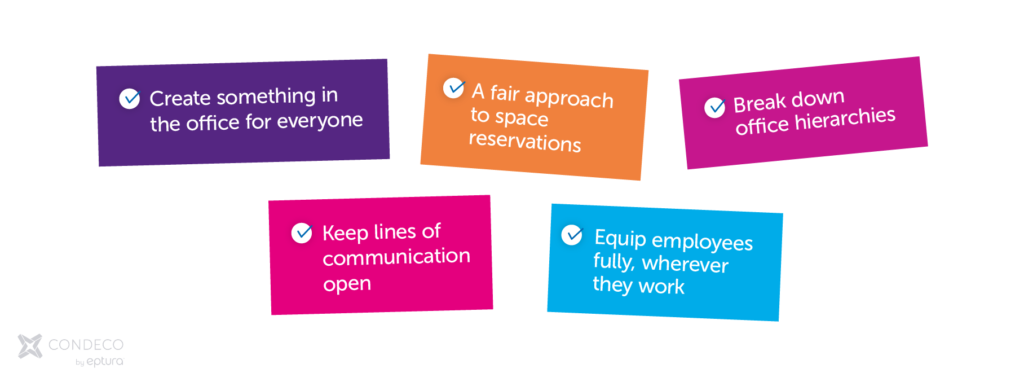
Equality and equity are hot topics in the world of work at the moment, as businesses strive to ensure that every employee is treated as fairly as possible. In the main, this normally refers to the personal characteristics of employees, i.e. their race, gender, background or sexual orientation. While these are extremely important factors to take into account, there is another factor that has emerged within the last couple of years but is often overlooked.
As flexible and hybrid working has become mainstream post-pandemic, some companies have seen divisions in the perceptions and treatment of employees, depending on how often they work from home. Some unfair historic views that those who work from home just want to hide away and be lazy have been retained. Meanwhile, at the other end of the scale, many of those making the effort to work from the office all or most of the time have been more able to build professional relationships and climb the corporate ladder.
It’s vital for any organization with this issue to iron out the differences as much as possible, and ensure that an employee’s choice of working arrangement is no barrier to their success, progress or enjoyment of work. In this blog, we’ll look at five different ways in which this can be achieved.

Create something in the office for everyone

The first thing is to make sure that the office environment is vibrant and diverse enough that every employee feels that there are workspaces available to suit their needs. Every employee is different: some like the hustle and bustle of an open plan office, while others prefer to shut themselves away in peace and quiet. Having an office that can cater for one type but not the other will lead many to stay away, so creating as many different types of workspace as possible ensures that choice is maximized for all.
A fair approach to space reservations
Because some employees want to work from the office more than others, many will naturally become creatures of habit and work from the same spaces and around the same people each day. This may work well for them, but it may leave those coming into the office occasionally feeling like second-class citizens if they can never access their ideal workspaces or have to sit outside established groups. A workspace booking and management solution can ensure that access to workspaces is kept equitable for every employee, regardless of their usual arrangements.
Break down office hierarchies

Connected to the previous point, some employees (and especially managers) may expect priority access to certain spaces, such as larger offices and conference rooms. Their need for access to these spaces for operational reasons must be carefully balanced with the need to avoid creating a feeling of ‘us and them’ within the workforce. Good workspace booking solutions come with customisable rules that can be applied to certain spaces, restricting or opening up bookings to certain people or departments as appropriate.
Equip employees fully, wherever they work
Not everybody has a home spacious enough to have a fully equipped home office; those that don’t risk injury if they’re working from their couch or kitchen table all the time. At the same time, all employees understandably expect to be able to work safely and comfortably wherever they are, and not feel that they’re being treated like second-class citizens. This is why workstation assessments (in the office and at home), and giving every employee all the furniture and kit they need, is vital.
Keep lines of communication open
If any employee is unhappy with their working arrangements, they have to feel that they can talk to someone and get a resolution, even if they rarely attend the office. That’s why it’s so important for employers to emphasize the ways in which they can get in touch, whether it be through employee surveys or one-to-one chats, so that employees never feel like they’re stuck with an inferior experience.



